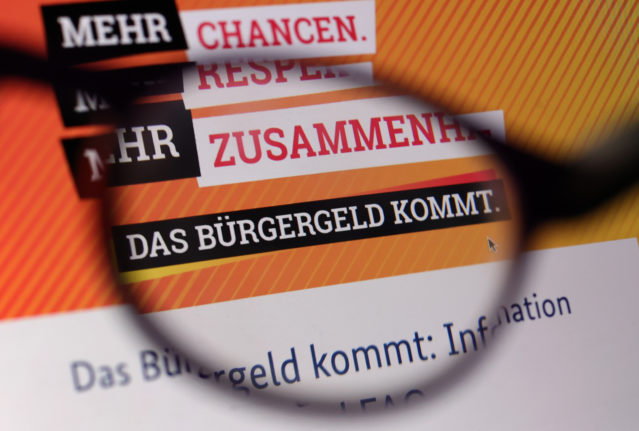It can drive you crazy. Change rolling under the sofa, jingling in your coat pocket or clogging up your wallet. Because of this, many people do something as soon as they get home: open their wallet and take out their change.
Germany is still a country which depends on cash. You pay with card in Scandinavian bakeries and English pubs. Some countries have even banned small change from everyday use – in the Netherlands, for instance, purchase prices are rounded to five cents. But coins are still commonplace in Germany.
In Germany, small purchases are almost exclusively paid with cash: 96 percent of purchases valuing up to €5 are made with notes and coins, according to a study last year by the Bundesbank – the German Federal Bank. Moreover, people pocketed €107 on average, of which €6 was small change. How many coins people have lying around at home is harder to say.
The Bundesbank estimates that about 60 to 70 percent of money that it gives out is now abroad. About 5 to 10 percent of coins and notes should be in circulation, and some lie in shops tills. The rest? It may be hoarded or lost.
“People shouldn’t forget that many coins also fall between car seats. Or in winter jackets, which you need to get out of the cupboard,” a spokesperson for the German Savings Banks Association in Berlin. They added that some people also have at home cash boxes, piggy banks or even small-change jars.
Helmut Schleweis empties out his change at home, in “a beautiful red piggy bank,” says the 64-year-old. “When it’s full it’s dutifully paid into the bank.”
Cashing in coins
Some banks now allow you to cash in coins. Institutions manage it very differently, as the respective Association of Savings Banks, Private Banks as well as the Volksbank and the Raiffeisenbank demonstrate. Some issue charges to business customers or external clients, while others demand fees for a certain sum or age.
At the Hamburger Sparkasse, for example, the “overwhelming majority” don’t pay anything extra, says spokeswoman Stefanie von Carlsburg. Other have been affected by charges since 2016, if they deposit more than five rolls or pouches of coins a month.
At the Berliner Sparkasse you can also deposit coins in plastic pouches (so-called “Safebags”). Customers older than 26 pay €7.50 per bag. The Berliner Volksbank demands a fee when customers pay in more than €100 a month. The handling of change is becoming increasingly more expensive, even despite new conditions, says Schleweis.
Banks should by now also check hard cash for counterfeits. “When money is be paid out, it is checked for its fitness for circulation and its authenticity, and it is prepared for and insured for transport,” a spokesperson for the Berliner Sparkasse says. In the current year, customers for the savings bank paid in coins that valued a total of around €18 million.
Private customers can also change coins “in normal household quantities” without charge in the 35 branches of the Bundesbank. Provided that you have one near you. It’s more complicated for businesses, as the provision of coins for change can be expensive. Businesses in Kleve, North Rhine-Westphalia had therefore started, like in the Netherlands, to round prices. That didn’t go as well as hoped.
And so at counters there are often exchange deals. “I can give you 27 cents,” customers like to say. And salespeople nod in agreement. And that is how many people get rid of coins while making purchases, without having to carry them home. Those who really don’t know what to do with loose change can also try tipping.
But be cautious with the sum. In Rhineland-Palatinate, a drunken passenger once caused trouble because he offered the taxi driver 3 cents. The driver threw the coins out of the car. At the end the police moved in.




 Please whitelist us to continue reading.
Please whitelist us to continue reading.
Member comments